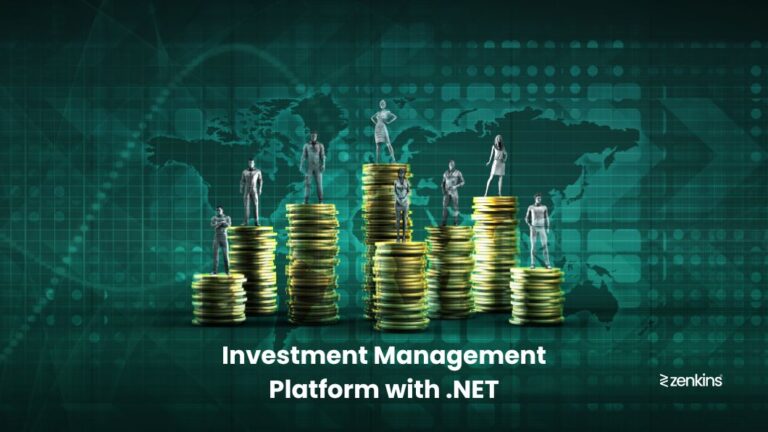Top 20 .NET Core and AI-Related Interview Questions with Answers
Table of Contents
Introduction
As technology rapidly evolves, the demand for developers proficient in .NET Core and artificial intelligence (AI) continues to grow. If you’re preparing for an interview in this dynamic field, being well-versed in both .NET Core and AI is crucial. In this comprehensive guide, we’ll explore the top 20 .NET Core and AI-related interview questions with detailed answers. Whether you’re a seasoned developer or a newcomer aiming to break into this exciting field, these insights will help you navigate the complexities of integrating AI with .NET Core. By understanding these key topics, you’ll be better prepared to showcase your skills and stand out in your next interview. Let’s dive into the essential questions and answers that will help you excel in the world of .NET Core and AI.
As the demand for AI-driven applications continues to rise, the combination of .NET Core and artificial intelligence (AI) has become increasingly relevant in the tech industry. Whether you’re preparing for an interview as a .NET developer or aiming to incorporate AI into your skill set, it’s essential to be well-versed in both .NET Core and AI concepts. Below is a list of the top 20 interview questions that cover these topics, along with detailed answers to help you ace your interview.
Top .NET Core and AI Interview Questions
1. What is .NET Core? How does it differ from the .NET Framework?
.NET Core is a free, cross-platform, open-source framework for developing applications. Unlike the .NET Framework, which is limited to Windows, .NET Core can run on Windows, macOS, and Linux. Additionally, .NET Core is modular, which means you can include only the libraries you need, making it more lightweight and suitable for cloud and microservices applications.
2. What are the main components of .NET Core?
The main components of .NET Core include:
CoreCLR: The runtime that executes .NET Core applications.
CoreFX: The foundational libraries for .NET Core applications.
ASP.NET Core: The web application framework for building modern, cloud-based, and internet-connected applications.
Entity Framework Core: The lightweight, cross-platform ORM (Object-Relational Mapper) for .NET Core.
3. Explain Dependency Injection in .NET Core. Why is it important?
Dependency Injection (DI) is a design pattern that allows an object’s dependencies to be injected into it, rather than the object creating them itself. In .NET Core, DI is built-in and managed via the built-in IoC (Inversion of Control) container. DI is important because it enhances code modularity, testability, and maintainability by reducing tight coupling between components.
4. What is the difference between Machine Learning and Artificial Intelligence?
Artificial Intelligence (AI) is the broader concept of machines being able to carry out tasks in a way that we would consider “smart.” Machine Learning (ML) is a subset of AI that focuses on the development of algorithms that allow machines to learn from and make predictions based on data.
5. How can you integrate Machine Learning models with a .NET Core application?
Machine Learning models can be integrated into .NET Core applications using libraries such as ML.NET or by consuming RESTful APIs exposed by models deployed on platforms like Azure ML, TensorFlow Serving, or a custom API service. ML.NET allows you to build, train, and deploy machine learning models directly within .NET applications.
6. What is ML.NET, and how does it fit into the .NET ecosystem?
ML.NET is a machine learning framework for .NET developers, providing tools to build, train, and deploy custom machine learning models in .NET applications. It fits into the .NET ecosystem by allowing developers to use their existing .NET skills to develop AI-powered applications without needing to switch to other languages or platforms.
7. Explain the concept of Model Binding in ASP.NET Core.
Model Binding in ASP.NET Core is the process of mapping HTTP request data to action method parameters or model properties. This allows for easy data retrieval from forms, query strings, route data, and more, simplifying the process of handling user inputs in web applications.
8. How does the .NET Core pipeline work?
The .NET Core pipeline is composed of middleware components that handle HTTP requests and responses. When a request comes in, it passes through each middleware component in sequence, performing tasks such as authentication, routing, and response handling. The pipeline is configurable, allowing developers to add or remove middleware as needed.
9. What are the different types of machine learning, and how are they relevant to AI in .NET Core?
There are three main types of machine learning:
Supervised Learning: The model is trained on labeled data.
Unsupervised Learning: The model is trained on unlabeled data and tries to find patterns.
Reinforcement Learning: The model learns by interacting with an environment and receiving feedback.
In .NET Core, these techniques can be used to build AI features such as predictive analytics, clustering, and recommendation systems.
10. How would you handle scalability in a .NET Core application using AI?
Scalability in .NET Core applications with AI can be managed by:
Horizontal Scaling: Adding more servers to handle increased load.
Caching: Using distributed caching mechanisms to store frequently accessed data.
Asynchronous Processing: Offloading long-running AI tasks to background services using tools like Azure Functions or background workers.
Containerization: Using Docker to deploy and manage instances of the application across multiple servers.
11. What is Entity Framework Core, and how does it support .NET Core applications?
Entity Framework Core (EF Core) is an ORM for .NET Core, allowing developers to work with a database using .NET objects rather than SQL queries. EF Core supports LINQ queries, change tracking, updates, and schema migrations, making database interactions more intuitive and strongly typed.
12. Describe the use of Azure Cognitive Services with .NET Core.
Azure Cognitive Services are a set of cloud-based APIs from Microsoft that enable AI capabilities such as vision, speech, language understanding, and decision-making. These services can be integrated into .NET Core applications to add features like image recognition, natural language processing, and sentiment analysis, all through easy-to-use RESTful APIs.
13. What are microservices, and how are they related to .NET Core?
Microservices are a design pattern where an application is broken down into small, independent services that communicate with each other over HTTP or messaging protocols. .NET Core is well-suited for building microservices due to its modularity, lightweight nature, and cross-platform support, making it a popular choice for building scalable, distributed applications.
14. What is the role of ASP.NET Core MVC in a .NET Core application?
ASP.NET Core MVC is a framework for building web applications using the Model-View-Controller design pattern. It helps separate concerns within an application, making it easier to manage complex web applications. It also provides features like routing, model binding, and validation, essential for building modern web applications.
15. How can you implement authentication and authorization in a .NET Core application?
Authentication and authorization in .NET Core can be implemented using middleware components like ASP.NET Core Identity, JWT (JSON Web Tokens), OAuth, and OpenID Connect. These tools provide mechanisms for user login, role-based access control, and claims-based authentication, ensuring secure access to application resources.
16. Explain how to deploy a .NET Core application integrated with AI to Azure.
Deploying a .NET Core application with AI to Azure involves several steps:
Prepare the application: Ensure all dependencies, including AI models or API services, are configured.
Choose a deployment method: Use Azure Web App, Azure Kubernetes Service (AKS), or Azure Functions based on the application’s architecture.
Continuous Integration/Continuous Deployment (CI/CD): Set up pipelines using Azure DevOps or GitHub Actions for automated deployment.
Monitor and manage: Use Azure Monitor, Application Insights, and Azure AI tools to track the application’s performance and manage the AI components.
17. What is the role of middleware in .NET Core, and how does it relate to AI integration?
Middleware in .NET Core are components that process HTTP requests and responses. In AI integration, middleware can be used for tasks like logging, authentication, and routing AI model requests. Middleware can also manage AI-specific tasks like validating API calls, processing input data, or managing AI model outputs before sending them to the client.
18. What are some common challenges when integrating AI into .NET Core applications, and how do you overcome them?
Common challenges include:
Performance: AI models can be resource-intensive, potentially slowing down the application. This can be mitigated by using efficient models, optimizing code, and leveraging cloud services for heavy computations.
Security: AI models can expose sensitive data. Implementing secure APIs, using encryption, and following best practices for data privacy can mitigate this.
Scalability: Scaling AI in applications can be challenging. Using cloud-based AI services and scaling infrastructure horizontally can help manage increased demand.
19. What is the purpose of .NET Core CLI, and how can it be used in AI development?
The .NET Core CLI is a command-line interface for creating, building, running, and managing .NET Core applications. In AI development, the CLI can be used to quickly set up projects, manage dependencies, and automate tasks like model training or deployment scripts, making the development process more efficient.
20. What are some future trends in AI and .NET Core development?
Future trends include:
Increased AI Integration: More seamless integration of AI tools and frameworks into .NET Core, enabling developers to build smarter applications.
Edge Computing: AI processing closer to the source of data, enabled by .NET Core’s ability to run on IoT devices.
Hybrid Cloud Solutions: Combining on-premise and cloud AI services with .NET Core for more flexible and powerful applications.
AI-Driven Development Tools: AI assisting in code generation, testing, and debugging, further integrating AI into the development lifecycle.
These questions and answers provide a comprehensive overview of the knowledge required to excel in interviews that focus on .NET Core and AI. Understanding these concepts will not only help you succeed in interviews but also equip you to build powerful, intelligent applications using .NET Core.
Introduction to .NET Core and AI Integration
The integration of AI with .NET Core represents a powerful convergence of technology, enabling developers to build advanced, intelligent applications. .NET Core, known for its cross-platform capabilities and efficiency, provides a robust framework for developing a wide range of applications. When combined with AI technologies, such as machine learning models and natural language processing, it allows for the creation of applications that can understand, predict, and interact with users in more sophisticated ways. This integration is transforming industries by enabling smarter decision-making, automation, and enhanced user experiences. Understanding how to leverage this synergy effectively is crucial for modern developers aiming to stay ahead in the technology landscape.
Interview Preparation Tips
Preparing for an interview in .NET Core and AI requires a strategic approach. Here are some tips to help you get ready:
- Study Key Concepts: Make sure you understand fundamental concepts of .NET Core, such as dependency injection, middleware, and the MVC pattern, as well as AI concepts like supervised and unsupervised learning.
- Hands-On Practice: Build sample projects or contribute to open-source projects involving .NET Core and AI to gain practical experience.
- Review Common Questions: Go through common interview questions and prepare detailed answers, ensuring you can articulate your knowledge clearly.
- Mock Interviews: Conduct mock interviews with peers or mentors to simulate real interview scenarios and get constructive feedback.
- Stay Updated: Keep abreast of the latest trends and updates in .NET Core and AI, as technology is constantly evolving.
Key Concepts and Terminology
Understanding key terms and concepts is vital for excelling in interviews:
- .NET Core: A cross-platform framework for building modern applications.
- ML.NET: A machine learning library for .NET developers.
- Dependency Injection: A design pattern for managing dependencies in .NET Core applications.
- API Key: A code used to access an AI service or API.
- Supervised Learning: A type of machine learning where the model is trained on labeled data.
- Unsupervised Learning: Machine learning that identifies patterns in unlabeled data.
- Entity Framework Core: An ORM for .NET Core that simplifies database interactions.
Common Pitfalls and How to Avoid Them
When preparing for .NET Core and AI interviews, be mindful of these common pitfalls:
- Overlooking Basics: Ensure you have a solid grasp of foundational concepts before diving into complex topics.
- Neglecting Practical Experience: Theoretical knowledge is important, but hands-on experience with projects and real-world applications is crucial.
- Ignoring Soft Skills: Communication and problem-solving skills are just as important as technical knowledge.
- Failing to Stay Updated: Technology evolves rapidly, so make sure you’re familiar with the latest updates and best practices.
- Underestimating the Complexity of AI Models: Understand that AI integration involves complexities like model selection and tuning, and be prepared to discuss these.
Practical Examples and Case Studies
- Case Study 1: Customer Support Chatbot
A company used .NET Core to build a customer support chatbot integrated with Azure Cognitive Services. This allowed them to automate responses and provide 24/7 support, significantly reducing operational costs. - Case Study 2: Predictive Analytics for Retail
An e-commerce platform utilized ML.NET to develop a predictive analytics model that forecasts inventory needs based on historical sales data, leading to more efficient stock management and increased sales.
Additional Resources
- Books:
- “Pro ASP.NET Core MVC” by Adam Freeman
- “Hands-On Machine Learning with ML.NET” by Nishant Srivastava
- Online Courses:
- Pluralsight: “Getting Started with .NET Core”
- Coursera: “Machine Learning with Azure”
- Websites and Blogs:
- Community Forums:
- Stack Overflow
- Reddit’s r/dotnet and r/MachineLearning
Mock Interview Scenarios
Scenario 1: Question: Explain how you would use dependency injection in a .NET Core application. Answer: Discuss how dependency injection promotes loose coupling and code flexibility by injecting dependencies through constructors or methods, rather than hardcoding them.
Scenario 2: Question: Describe a time when you integrated an AI model into a .NET Core application. What challenges did you face, and how did you overcome them? Answer: Share a specific project example, outlining the integration process, any challenges such as performance issues or data handling, and the solutions implemented.
Expert Insights and Opinions
Jignesh Darji, Senior Developer: “The integration of AI into .NET Core applications is a game-changer. It not only enhances the functionality but also drives innovation. Developers should focus on understanding the nuances of AI models and how they can be effectively utilized within the .NET ecosystem.”
Naresh D., AI Specialist: “AI is transforming how applications interact with users. Mastering both .NET Core and AI will set you apart in the job market. Stay updated with the latest tools and practices to leverage these technologies to their fullest potential.”
Future Trends in .NET Core and AI
- Enhanced AI Capabilities: Expect advancements in AI models and algorithms, leading to more sophisticated applications.
- Serverless Architectures: Increased use of serverless computing to handle AI tasks, reducing infrastructure management overhead.
- Integration with IoT: More AI-driven applications will be integrated with IoT devices, enabling smarter, connected ecosystems.
- Automated Code Generation: AI will play a role in automating aspects of software development, including code generation and testing.
Skills and Qualifications Checklist
- Proficiency in .NET Core: Understanding of core concepts, frameworks, and libraries.
- AI Knowledge: Familiarity with machine learning concepts, AI APIs, and data processing.
- Practical Experience: Hands-on experience with projects involving .NET Core and AI.
- Problem-Solving Skills: Ability to tackle complex problems and provide innovative solutions.
- Communication Skills: Effective communication of technical concepts and project experiences.
Conclusion
As the demand for skilled developers in .NET Core and AI continues to rise, being well-prepared for interviews in these areas is more important than ever. This comprehensive guide to the top 20 .NET Core and AI-related interview questions and answers aims to equip you with the knowledge and confidence needed to excel. By understanding key concepts, avoiding common pitfalls, and staying up-to-date with industry trends, you can set yourself apart in the competitive job market.
Incorporating AI into .NET Core applications is not just a technical skill but a gateway to building smarter, more efficient, and innovative solutions. Whether you’re a seasoned professional or just starting your journey, mastering these technologies will open doors to exciting career opportunities.
As you continue your preparation, remember that success in interviews is about more than just answering questions—it’s about demonstrating your ability to think critically, solve problems, and contribute to the future of technology. Use this guide as a resource to refine your skills, and you’ll be well on your way to acing your next interview and advancing in your career. Good luck!





